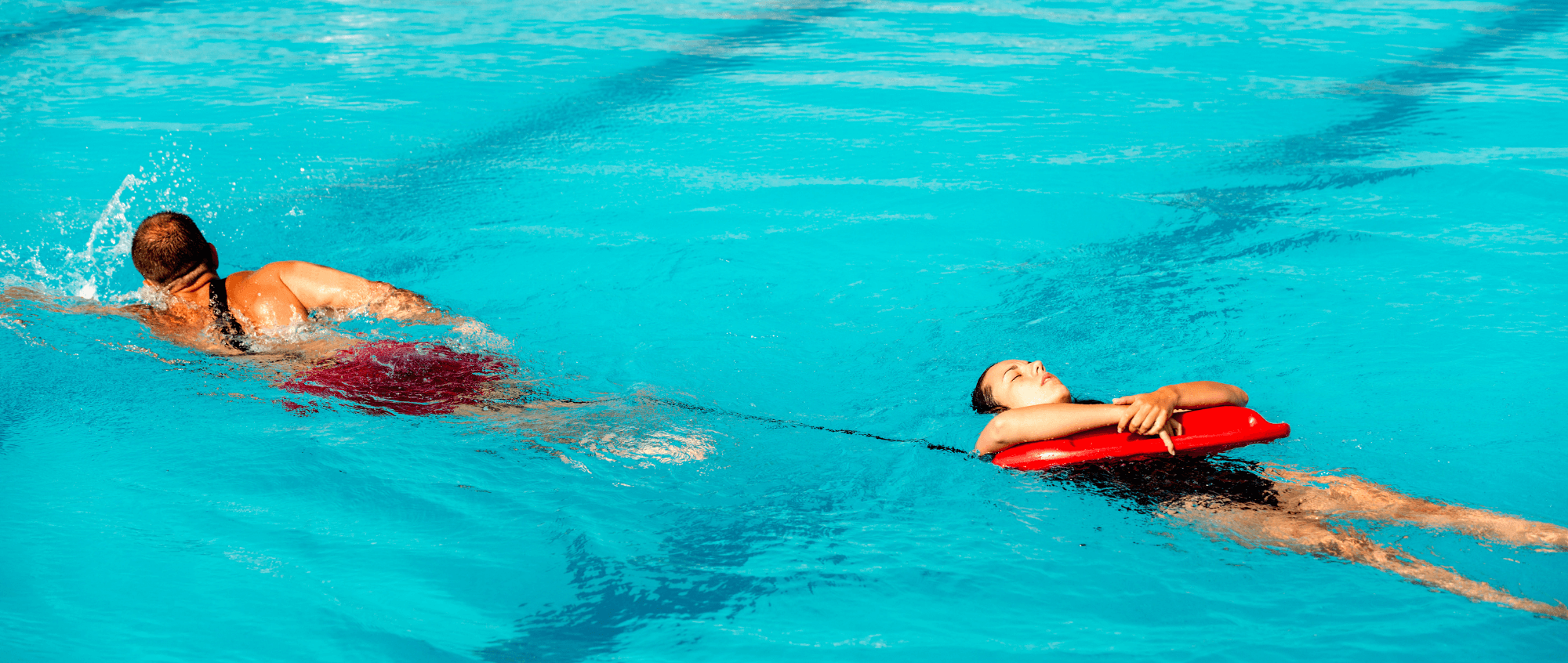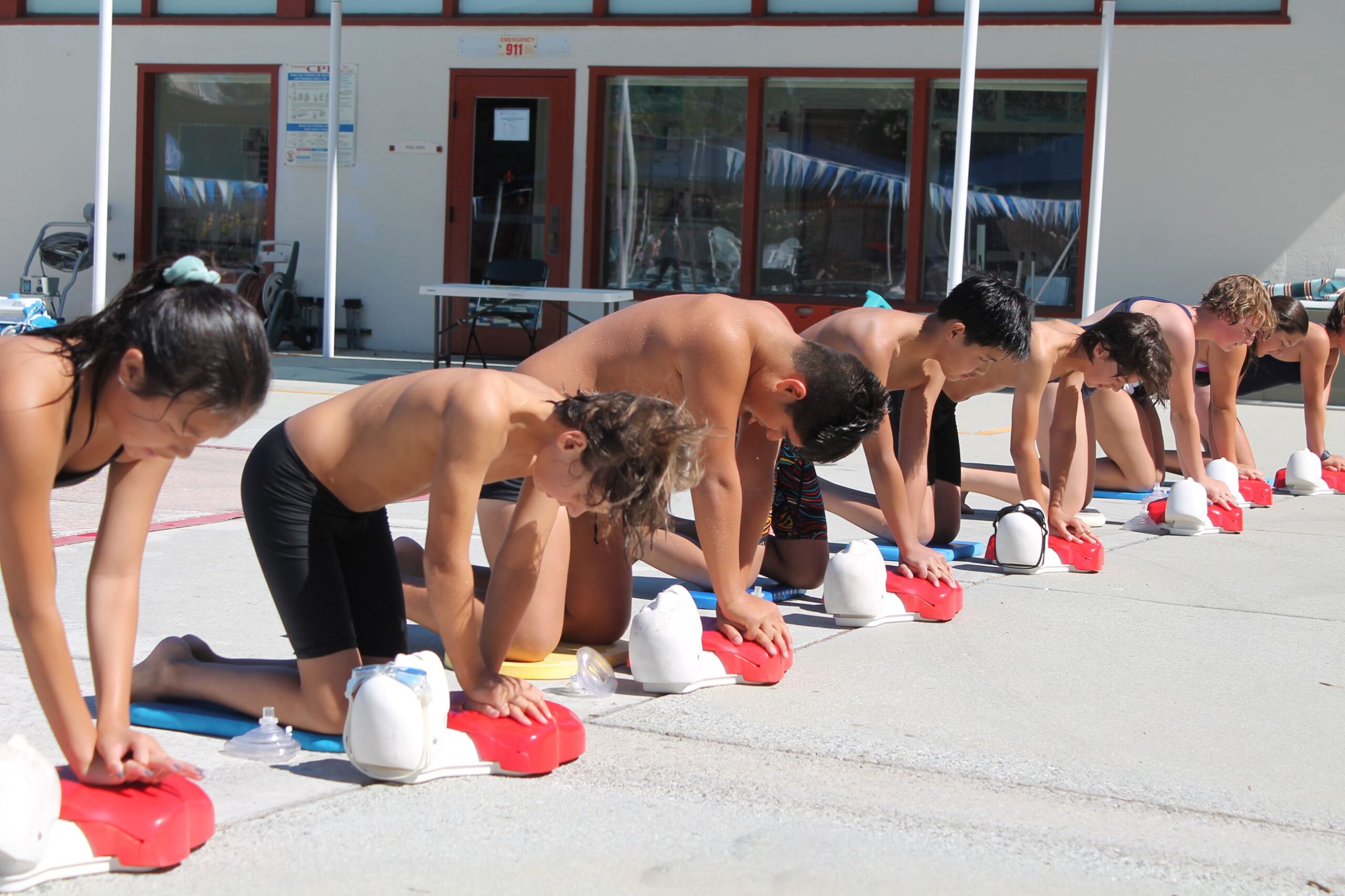In lifeguard training, the prevailing misconception is that it’s exclusively a summer affair. However, this couldn’t be more inaccurate. The need for skilled lifeguards doesn’t dissipate when the temperatures drop and winter sets in.
It’s time to shed light on these misconceptions and underline the year-round significance of training, regardless of the season.
Myth 1: Lifeguard training is Only for Summer
One of the most persistent myths is that lifeguard training is tailored exclusively for the summer season. While it’s true that the summer months witness more swimming activities, water-related emergencies are not limited to warm weather. Winter shifts the scene, but the demand for trained lifeguards persists throughout the year.
Myth 2: No One Swims in Winter
It’s a common belief that winter effectively puts an end to all swimming activities. While the number of swimmers dwindles during the colder months, dedicated swimmers and those in warmer climates continue to plunge.
Indoor pools operate year-round, necessitating the presence of trained lifeguards. Lifeguard classes near me cater to various settings, including indoor pools, ensuring lifeguard skills remain relevant.
Myth 3: Cold Weather Doesn’t Lead to Emergencies

Yet another misconception arises from the belief that cold weather reduces the likelihood of water-related emergencies. Cold weather brings about its own unique set of hazards, most notably the heightened risk of hypothermia when individuals are exposed to cold water or icy air for prolonged durations.
The training imparts the essential knowledge and skills required to promptly identify and effectively respond to such cold-weather emergencies, rendering it indispensable during the winter months.
Myth 4: Lifeguard certification Expires in Winter
There’s a misguided belief that lifeguard certification earned in the summer becomes irrelevant come winter. In practice, lifeguard certification typically remains valid for one to three years, regardless of the season it was obtained. Renewing your certificate ensures you are well-prepared to handle emergencies throughout the year.
Myth 5: Lifeguard training is Ineffective in Winter
While winter conditions may differ from summer, the core principles and skills instilled during training remain constant. The training imparts crucial skills, such as water rescue techniques, CPR, first aid, and emergency response procedures, which are applicable year-round. Thus, winter training is just as effective as its summer counterpart.
Myth 6: There’s No Demand for Lifeguards in Winter
Contrary to the belief that lifeguards are only needed during the summer, numerous facilities require their services throughout the year. Schools, community centers, fitness clubs, and hotels often maintain indoor swimming pools open in colder months.
Additionally, some lifeguards transition to beach patrol or work at year-round aquatic facilities, ensuring safety along coastlines and at indoor pools.
Myth 7: Winter Training is Uncomfortable
Admittedly, winter lifeguard training may involve braving chilly weather conditions, but it’s essential to recognize that it doesn’t render the training uncomfortable or impractical. Lifeguard courses are meticulously designed to teach trainees how to perform effectively in various environments, including those with colder temperatures. Adaptability to different conditions is a fundamental aspect of this training.
Myth 8: Winter Lifeguarding is Boring
Some may assume that winter lifeguarding lacks the excitement and action of the summer season. However, while the nature of emergencies may change, winter lifeguards remain vigilant and prepared to respond to any situation. Every day on the job presents new challenges and opportunities for lifeguards to apply their training effectively.
Myth 9: Winter Lifeguards are Unnecessary
One of the prevailing misconceptions is that the risk of drowning or water-related emergencies is minimal in the winter, rendering lifeguards unnecessary. This assumption is significantly off the mark. Accidents can transpire at any moment, and the mere presence of a skilled lifeguard can determine the critical difference between life and death. This training’s central mission is to ensure readiness for such circumstances.
Myth 10: Lifeguard training Only Offers Seasonal Employment
It’s crucial to debunk the myth that this training merely provides seasonal job opportunities. While many individuals opt for lifeguarding as a summer job, others pursue it as a long-term career. Lifeguarding offers various career paths, including pool management and aquatic facility administration, throughout the year.
The Importance of Year-Round Lifeguard Training
Winter doesn’t diminish the significance of lifeguard training; it reinforces it. It equips individuals with the skills and knowledge necessary to prevent accidents and respond effectively to water-related emergencies in all seasons. Winter training is equally essential as it prepares lifeguards to handle unique challenges and ensures the safety of swimmers, no matter the weather.
In summary, it is vital to debunk the misconceptions regarding winter training. Lifeguard instructors and organizations are unwavering in their commitment to delivering thorough, year-round activity, guaranteeing that lifeguards remain ever-prepared to address emergencies, no matter the time of year.
To locate trusted lifeguard courses in your vicinity and secure a lifeguard certification, individuals can rely on institutions like the American Lifeguard Association (ALA), which provides extensive training and certification programs to ensure lifeguards are perpetually equipped to protect lives in aquatic settings.





